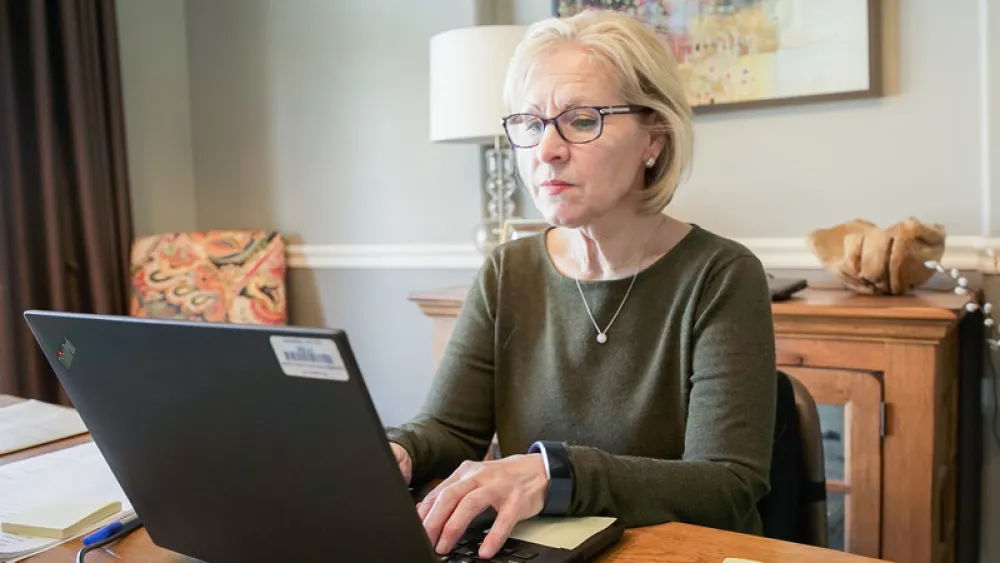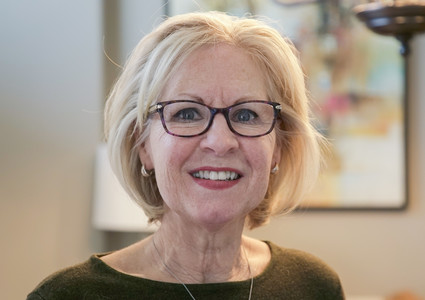Mental Health
Methodist Emotional Support Line Counselors Ready to Listen, Help During These Challenging Times
Published: April 23, 2020

Vicki Meyer, MS, LIMHP, was at her kitchen table when she got the call.
The woman on the other end of the line had lost her job a few days before. Her marriage had ended earlier this year. She was estranged from her family and had turned to alcohol to cope. Now she was having suicidal thoughts.
“She was just very depressed and didn’t feel like she had any support in her life,” said Meyer, a counselor with the Methodist Hospital Community Counseling Program.
Meyer, who has over 30 years of counseling experience, kept the woman on the phone and gathered more information, then texted a colleague who called 911. Help soon arrived at the woman’s home, keeping a bad situation from getting worse.
“I just felt really grateful that I was able to help,” Meyer said.
Supporting the Community
Before the COVID-19 pandemic, Meyer divided her time between Omaha Central High School and Kountze Memorial Lutheran Church, counseling students, families and other individuals.
With schools, churches and community centers closed, the counseling program’s licensed professional counselors are still helping clients by phone from their homes. And they’ve added a new duty: answering calls to the Methodist Emotional Support Line. The service was established in March to help people who may be experiencing feelings such as:
- Fear
- Anxiety
- Sadness
- Depression
The free, confidential service is available Monday to Friday, 8 a.m. to 4 p.m. and can be reached by calling (402) 815-8255 (TALK).
Counselors can help callers by answering questions, addressing concerns, scheduling counseling appointments for additional care and providing referrals to community resources.

“Here to Help and Listen”
Meyer stressed that callers don’t need an emergency to use the line. No problem is too small if it’s troubling someone.
“It takes a lot of courage for someone to make the call,” she said. “It doesn’t matter what they’re calling for. We will support them, and we will help them get through it.”
For example, counselors have:
- Helped to calm down an arguing couple.
- Offered tips to help a mother deal with stress and establish a routine for homeschooling her children.
- Talked with a man who was anxious, fearful and depressed after losing his job. The man later called back to thank the counselor.
Another common theme among callers is dealing with social isolation.
“The loneliness is very difficult for some people,” Meyer said.
On one call, a counselor helped an elderly widower process his feelings and adjust to social distancing guidelines.
Regardless of the reason, the counselors are ready to help.
“We’re going to talk to them until they feel better, or they have a plan and are able to cope,” Meyer said. “Everybody is here to help and listen.”
More Resources
- 7 tips for working at home during the COVID-19 pandemic
- Learn more about managing anxiety during COVID-19
- Follow Methodist on Facebook, Twitter and Instagram for the latest COVID-19 updates


